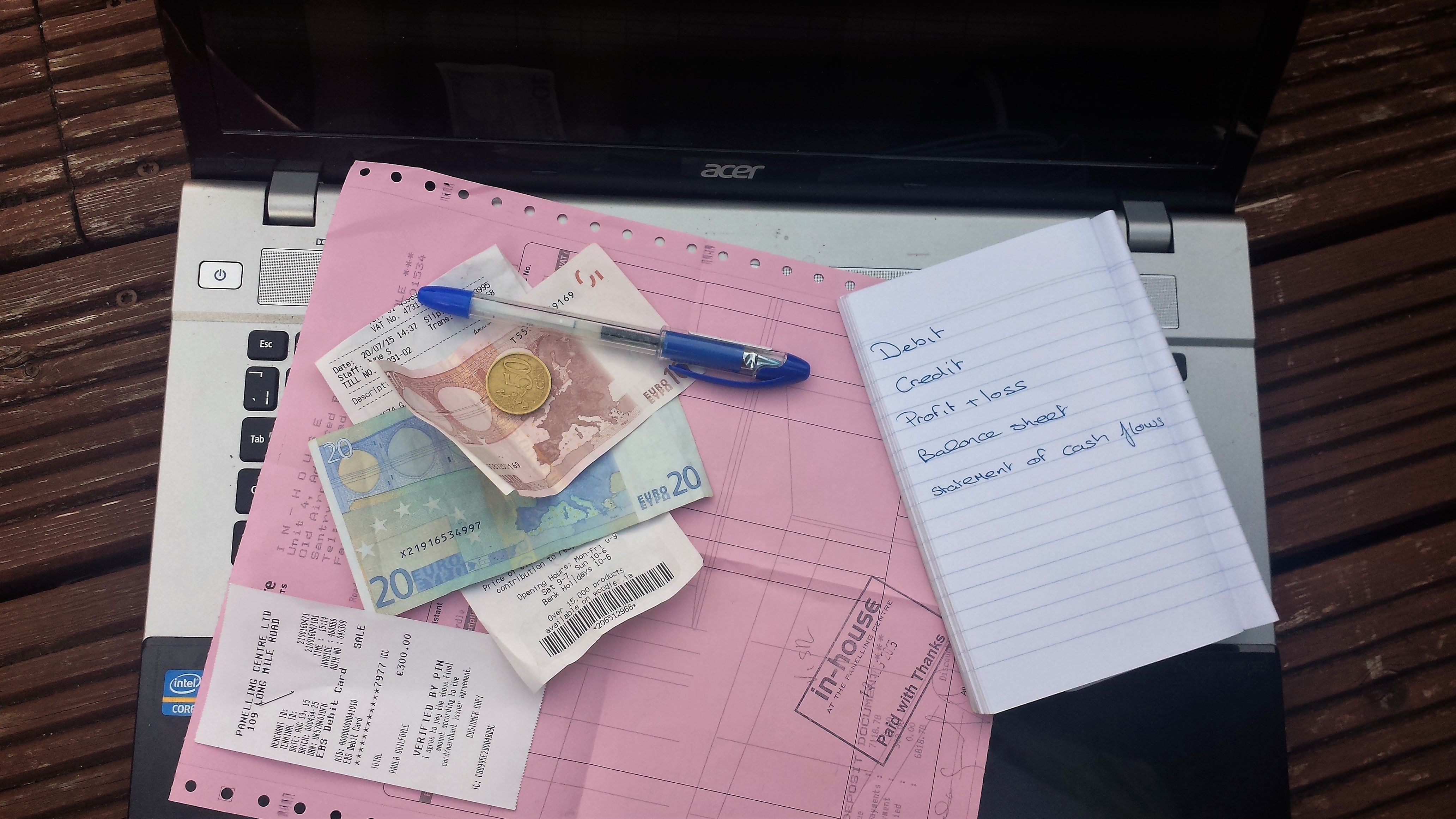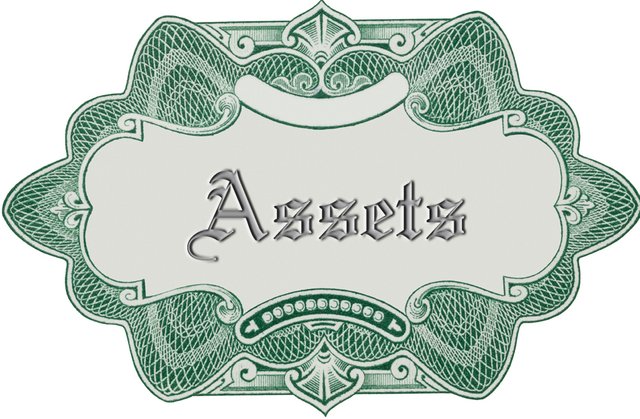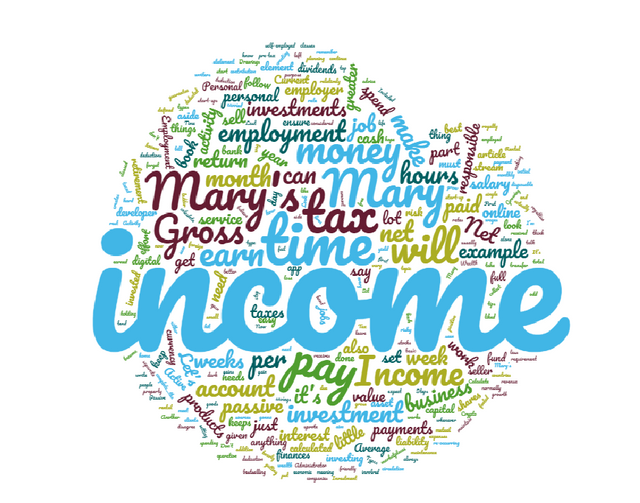How are you Accounting for Steemit Earnings?
Recently I was looking at my earnings on Steemit with the aim of getting on top of my accounting and dreaded tax returns. After last year I promised myself that I would do things monthly and set aside my taxes so at the end of the year I don’t have this whopper bill and no cash to pay it with.
It’s funny because I am a CPA accountant and should really know better than to leave my own accounting and tax to build up.
My next tax return due will be my first Tax return with crypto earnings, including Steemit earnings.
Everyone here has a different situation and are governed by different tax laws and rules and how taxes are calculated on Steemit earnings remains a mystery for many, including me and I am an accountant!
So this post is an effort to lay down my approach to Revenue recognition relating to my Steemit earnings and to gather your thoughts and feedback on it. Drawing from my experience as an Accountant and dealing with Revenue Recognition issue’s and regulations, I hope to cover most options.
First and foremost my account on Steemit is rather simple. I am not a witness, I don’t own any bots or services on Steemit that users pay me for. So my income is author rewards and curator rewards, which I collect when I claim my rewards.
However, I have also received gifts of both STEEM and SBD. In Ireland we have gift tax. Do you have this where you are from? Because if you do, you should keep track of how much you received.
My earnings from author rewards and curator rewards, how could these be classified by Mr Tax Man?

Is it a Gift?
Well first off all, I am not guaranteed to be paid for a post. In fact rewards could be removed at the last minute by flags. Does that make all of the income from Steemit a gift? If so it would all be taxed as a Capital Gain and not Income Tax. If I used bit bots to purchase votes, then these votes are not a gift. But I don’t use them, so I don’t have to worry about that. How about self-votes, because you can gift to yourself…
I really don’t think that the author and curator rewards on Steemit could be classified as a Gift for tax purposes. What do you think?
Is it an Asset?
In most countries, Cryptocurrency is not regulated and not recognized as a currency, but an asset. This is an extremely important fact when it comes to tax and accounting regulations. It seems to be the main cause of confusion because Assets are not taxed or accounted for in the same way as Revenue.
For me, well it is a form of currency and so the rest of this article will be based on that thinking.

Is it Trading Income/Revenue?
Trading Income/Revenue in this case being activities in the normal course of business. We are not talking about trading crypto currencies on exchanges here.
I believe this to be the most likely outcome from a tax man perspective. I am writing content, which takes time. In return for this content and time I am rewarded at a variable rate with STEEM and SBD.
Steemit may not have been ‘the normal course of business’ however if considerable time is spent on it, then it becomes normal and would be seen as diversification and a new revenue stream.
Profits earned in a registered company (Limited company in Ireland) are subject Corporation Tax. This profit can come from trading income, investment income, rental income, interest income and there are also other types of income. As there is a swap for time, I think Mr Tax Man would constitute these earnings as Trading Income and treated as revenue.
If you are a sole trader, so you do not have a limited company, then the income would also be classified as Trading Income and taxed at income tax rates.
When is the Trading Income actually recognized as Revenue?
Accounting regulations lay down clear guidelines on revenue recognition. However Steemit is very different as not all payments are liquid, but are classified as vests.
With Steemit we have the option to be paid 100% power up or 50%/50%. All liquid SBD would be taxable as it is liquid. However there is still the power up element as this has a 13 week power down time frame.
Now if I was Mr Tax man I would ask myself the question, with this power up/ power down, do you have the choice to begin power down immediately? As the answer to this question is Yes, I would then ask my self the question – why are you leaving it in Steem Power?
There are a number of reasons people keep Steem Power. It gives a higher vote worth, it allows you make gains/losses when the price changes, it proves faith in Steemit. But all of these answers boil down to one thing. Investment.
If you chose to keep the Steem Power, then you are making an investment in STEEM
What do you think?
When you accept a payment claim you get the increase in SP and SBD at the same time. The SBD is recognized as revenue then. This part can be very clear cut.
The SP on the other hand could be recognized as revenue either at the same time as the SBD, ie when the payment claim is accepted. After all an argument could be made that you are a creditor of Steemit when it comes to the SP and 13 week power down. With the nature of Steemit and the fact the claims could be rather often, for simplicity in calculations it could be argued that this option is also more cost effective.
Or, option 2 is that it could be recognized as revenue in equal amounts over 13 weeks following.
Personally I feel we are creditors of Steemit, although by using the word ‘vests’ may have implications on this standing.
When Does the Trading Income become Investment Income?
Depending on when revenue is recognized would depend on when your SP becomes an investment.
Let’s take case 1 again, where your SP becomes recognized as revenue when it is claimed. You still have to wait 13 weeks before it is all liquid. Due to this, you cannot make an investment until you have something to invest. Therefore the investment crystallizes in equal amounts over 13 weeks.
However under this case you will also have exchange gains and losses between the date payment claims was accepted and the Power down date. These gains or losses would be recorded against trading income and not investment income.
But if the income is only deemed as revenue over a 13 week period after the claim is accepted then the investment also begins at a staged rate over the 13 weeks. So it’s the same either way!
Does this make since or have I lost you?

What is the Value of my Steemit Earnings?
So we have SBD classified as revenue as soon as the claim is accepted and we are unsure of the Steem Power. Let’s look at the different scenarios for valuation.
The date the claim is accepted SBD is recognized as revenue at the exchange rate on the day. An average daily rate is normally acceptable. Your accounting records at minimum should keep both the SBD payment amount, date and exchange rate. This is the trading income value to be recorded as revenue.
If Mr Tax Man deems SP to also be recognized as revenue on the same day, then the same rule would apply for SP and SBD and things would be nice and simple. The exchange rate use for valuing the SP would be the exchange rate on the date the payment claim was accepted.
If Mr Tax Man deems SP to be recognized as revenue of equal amounts over 13 weeks, then the revenue would be valued at each weekly power down amount.
That covers Trading Income. Now let’s look at valuing investment income very quickly
We saw that when the investment crystallizes, it seems that SP would be classed as an investment in equal amounts over 13 weeks. Each weekly amount would be valued at the rate on that date. If it is not powered down, gains and losses are recorded based on the exchange rate on the date you are reporting. So lets say you are reporting to the year end 31st Dec and have not powered down all year. Then you would take the exchange rate at that date and use it to value the SP holding. The difference between the value on date of crystallization and year end (or any other reporting date) is the recorded gain or loss.
I mentioned the word investment and this leads to some more questions. What are you investing in? Are you investing in Steemit or are you investing in your own steemit account with the aim of using it to generate more income? You see there are different classes of investments and different classes of assets. In a follow up article (when I get to that part of my accounting) we will look at this in a lot more detail.

Conclusion
At the moment I will be accounting as follows:
Claims of both SBD and STEEM will be recorded as revenue on the date the claim is accepted at the average exchange rate for that day.
To account for the 13 week power down, well I never power down, so all of this will crystallize into an investment for me. Therefore I have two calculations to make.
The first is to account for the exchange differences between the claim acceptance date and the weekly power down dates. Each week the power down amount is converted to local currency at the exchange rate on that day. There will be 13 different exchange rates. At the end of the 13 weeks the local values are added together to get a total amount. The difference between this value and the Revenue recognized value is classes as difference of exchange on receipt of payment. Any gain or loss to be included in the accounts.
The second calculation is the valuation of the investment or asset. We have actually calculated this in the above step. Each week the power down amount is converted to local currency at the exchange rate on that day. There will be 13 different exchange rates. At the end of the 13 weeks the local values are added together to get a total amount. That is the value of the investment. But remember, this must be done for each claim you accept.
It’s worth remaining you now that this article only looks at revenue for author and curator rewards. It do not look at elements of witness rewards or other rewards that are/were available. For some Steemit is a business, with bid bots, SP leasing, DAPPs and everything else that’s going on. In fact accounting for a business on steemit requires a bit of work, and this article only touches on the revenue recognition element of author and curator rewards.
This is how I am accounting. It is not accounting advice as at the moment there are no accounting standards or regulations around the area of cryptocurrency. Advice varies from Accountant to Accountant because of the lack of regulation and until the time of regulation and accounting standards, I could be deemed wrong, just as quickly as the next accountant. So if I don’t give advice, then I am not liable. This is also the reason many other Accountants won’t touch crypto.
I would love to know how your account for your steemit earning? What records do you keep? How often to do update them? Do you think keeping these records are important? Please do leave your comments and feedback below
Follow Up
I will do a follow up article showing you how you can quickly gather revenue data from your steemit account from SteemSQL and keep it up to date in excel with a quick click of the refresh button. In that article I will also show you how you can automatically value the revenue using live data from coinmarketcap. Really it is the minimum bookkeeping you should do.
I will also do a follow up article on how you could account for the investment you make by leaving SP earned from curator and author rewards in your account and we will also look at asset classes in that article.
Is there any other follow up you would like to see?
Man I hate this. Not your post obviously, but the excess burden we have of working out what we owe. Any other entity than the state would have to build up their case for what you owe, send you an invoice at which point you can challenge them if you disagree. With tax all the burden is on us, creating extra non-productive work for everyone, it's such a headache.
well further research indicated that Steemit inc could be liable for VAT on digital content that earns money! Look up the EU directive on VAT on digital content...
Hey @paulag! :) i've just came across your article. It's super interesting although sometimes complicated. I wanted to ask if you plan to write those follow-ups you mentioned? it would be awesome to gain more of your insight! thank you and have a great day! 🍀 (upvoted for visibility)
I was not sure there really was the interest in the follow up. But yes i will do them
i think this topic is super important. i read the comment section and had an impression that there are more people who wait for the follow up. 😅 so i wasn't sure if i just missed it among your other posts 🙂 i really highly appreciate all the work you made to try to explain this topic in simple words! Thanks again! 🙂
@ k-a-s-i-a hi, I am doing a webinar as the follow up, sorry its late but I have been so busy. Hope you will attend the webinar
https://dlive.io/video/theexcelclub/bdffe2b0-70c2-11e8-8587-fb4bcb1f0470
https://steemit.com/dlive/@paulag/hosting-my-fist-live-webinar-on-dlive-and-you-are-invited
It all depends on what country and what laws are dictating the definitions. In the United States cryptocurrency is allegedly considered to be an asset. However they say if you are getting the cryptocurrency in exchange for doing something then it is considered income.
What bothers me about this statement made by the IRS is that it is just a statement. It is not a definitive ruling. There is no other guidelines. The IRS isn't even a hundred percent sure what to do with it and hasn't provided concrete evidence contrary.
Also when you own stocks in the United States and you leave them as stocks, you do not pay taxes capital gains or otherwise, until you actually cash out those stocks and convert them into Fiat US dollars period while you're holding the stock the value goes up and down.
Steam goes up and down in value on a daily basis. If I am to follow the current statement, as an asset I'm not required to keep track of the daily fluctuation in price, nor am I required to pay taxes on those calculations. If it is considered an income, again I would only consider that taxable if I actually redeemed it. I do not count future paychecks from my job as my income until I actually have received it.
I personally think if the IRS wants to tackle this in a similar manner they need to come out with exact guidelines, exact requirements, and crypto anyting needs to come out with calculators that can just print out this information at tax time like stockbrokers do. Until then I think it's up to each individual how they want a process that information.
the biggest problem is that there are no rulings, no standards, no guidelines. Its a massive headache and the governments and accounting standard setters are not dealing with the issue at all.
In ireland too if you make an investment and leave them as stocks there is no CG tax till you cash out. However there is a fine line between and investment and trading stock. if you are paid in SBD but trade it to STEEM, you now have trading transactions too, and conversion to any other coin also calls into question what is an 'investment'
hi, I am doing a webinar as the follow up, sorry its late but I have been so busy. Hope you will attend the webinar
https://dlive.io/video/theexcelclub/bdffe2b0-70c2-11e8-8587-fb4bcb1f0470
https://steemit.com/dlive/@paulag/hosting-my-fist-live-webinar-on-dlive-and-you-are-invited
I believe in my country I can make up to 2000€ extra without paying taxes.
So I think if I dont payout more than 2000 a year on my bank account I should be fine.
Have a nice day!!
revenue recognition and cash are two different things. You might find you can earn 2000K but you should really look into what is classes as earnings. these revenue recognition standards are global
hi, I am doing a webinar as the follow up, sorry its late but I have been so busy. Hope you will attend the webinar
https://dlive.io/video/theexcelclub/bdffe2b0-70c2-11e8-8587-fb4bcb1f0470
https://steemit.com/dlive/@paulag/hosting-my-fist-live-webinar-on-dlive-and-you-are-invited
Wow, you are really thorough here! I skimmed through most, and what I'm not sure I understand is why you concern yourself with the 13 power down weeks on SP if you both classify it as an asset/investment and never power down. Wouldn't then SP rewards be and income/revenue that you immediately reinvest?
I'm really looking forward to your follow up. Until now I'm using Cointracking (<-- link includes referral code) which is really awesome at tracking and seems to be awesome at reporting, but is more geared toward the Cryptocoin/ICO investor than Steem author (which I suppose your Excel how-to will cover).
For those who wants to keep things simple @steemreports' Financial section should be helpful, without needing to use SteemSQL.
"Wouldn't then SP rewards be and income/revenue that you immediately reinvest?"
You can only make an investment if you have something to invest with. If there is 13 weeks then you dont have access to fund to invest.
Steemreports financial section is helpful but it is also nice to know where the values came from and how they should be used in accounting. And I am not sure it is fully correct, as for mine it shows power downs, I have never powered down
Im gonna go ahead and tell you that most people dont declare these earnings :P
On the other hand, here in Portugal I dont have to, Crypto is tax-free for now.
Sweeet, see you there!
hi, I am doing a webinar as the follow up, sorry its late but I have been so busy. Hope you will attend the webinar
https://dlive.io/video/theexcelclub/bdffe2b0-70c2-11e8-8587-fb4bcb1f0470
https://steemit.com/dlive/@paulag/hosting-my-fist-live-webinar-on-dlive-and-you-are-invited
Very thorough and informative. This will be a good resource for many!!!!

Did you make a follow up to this @paulag ?
I'm very bad at accounting and I would love to have you as my neighbour so you could help me :D
I believe in the Netherlands for now crypto is seen as an asset. That means I for now will have to look at my total STEEM/SBD and fill this in at the end of the year > its value in euros. I have to file taxes over 2017 - and tell The Tax Man what value in crypto I had on the first of that year. Since I had none at 1-1-2017 I will not pay taxes over crypto this year. Next year I will have to know how much crypto I had on 1-1-2018.
I now realize I have no idea if we are able to simply look-up our account/STEEM holdings at a certain point in time? Do you know? If not I'll now have to remember to maybe write down my total STEEM every first of the month.
Thanks for writing down your thoughts and maybe even nudging me to start accounting a bit better.
@steemreports' financial accounts report will help and also I will be doing a follow up showing you how to get these numbers.
Thanks for stopping by and leaving a comment
Thanks! Great top and would love to see your upcoming post :-)
awesome, can't wait for this!
Have a look at @steemreports' financial accounts report and their financial section.
Thanks! I didn't know!
hi, I am doing a webinar as the follow up, sorry its late but I have been so busy. Hope you will attend the webinar
https://dlive.io/video/theexcelclub/bdffe2b0-70c2-11e8-8587-fb4bcb1f0470
https://steemit.com/dlive/@paulag/hosting-my-fist-live-webinar-on-dlive-and-you-are-invited